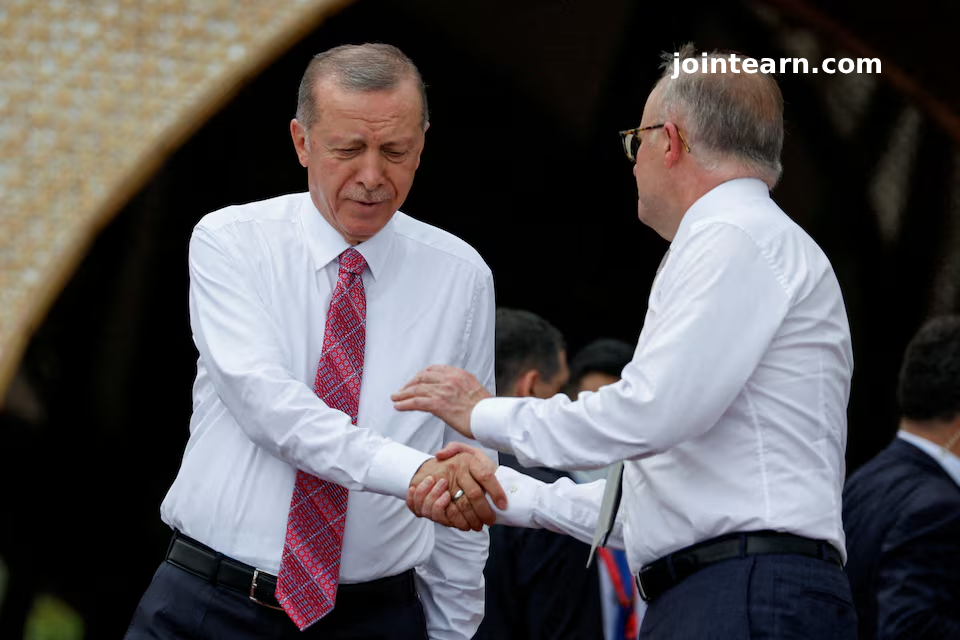
ANKARA, November 16, 2025 – Turkey has suggested a joint leadership model with Australia for the next U.N. climate summit, COP31, in an effort to resolve a persistent hosting standoff. However, the two countries have yet to reach a formal agreement, leaving the dispute unresolved as COP30 takes place in Belem, Brazil.
Background: COP31 Hosting Dispute
Both Turkey and Australia submitted bids in 2022 to host COP31. Neither has withdrawn, resulting in an impasse that has drawn international attention. The Conference of the Parties (COP) is the preeminent global forum for climate negotiations, and the host nation plays a key role in shaping the agenda, facilitating negotiations, and steering global climate diplomacy.
Turkish diplomatic sources indicated that discussions on a joint presidency model began during side meetings at the U.N. General Assembly in September 2025, proposing shared hosting duties for high-level meetings and co-steering the summit’s negotiations.
While these talks established a basis of mutual understanding, differences remain regarding how co-presidency could operate under U.N. procedural rules. No formal agreement has yet been finalized.
Positions of Turkey and Australia
- Australia: Energy Minister Chris Bowen attended COP30 in Brazil, affirming Australia’s bid and noting “overwhelming support” for its candidacy. Canberra has highlighted co-hosting with Pacific island nations to emphasize the climate risks they face. The Pacific Islands Forum has expressed support for Australia’s bid.
- Turkey: Emphasizes cooperation, inclusiveness, and climate finance for developing countries. Turkey also aims to showcase its progress toward a 2053 net-zero emissions goal, according to President Tayyip Erdogan’s correspondence with the Australian Prime Minister. Turkish sources suggest that flexible solutions could still be developed through continued consultation.
Turkey has indicated it remains prepared to host COP31 independently if no consensus with Australia is reached.
U.N. Process for Hosting Approval
The COP31 host rotates among five regional groups, with the selection requiring unanimous approval from the 28-member Western Europe and Others Group, which includes both Turkey and Australia. The outcome of COP30 discussions in Brazil is expected to provide further clarity on the hosting arrangement.
Implications for Global Climate Diplomacy
The potential co-leadership model could serve as a precedent for future COP summits, demonstrating flexibility in resolving procedural and diplomatic challenges. It also reflects the growing importance of inclusive climate governance, particularly in addressing the needs of developing countries and vulnerable regions.


Leave a Reply